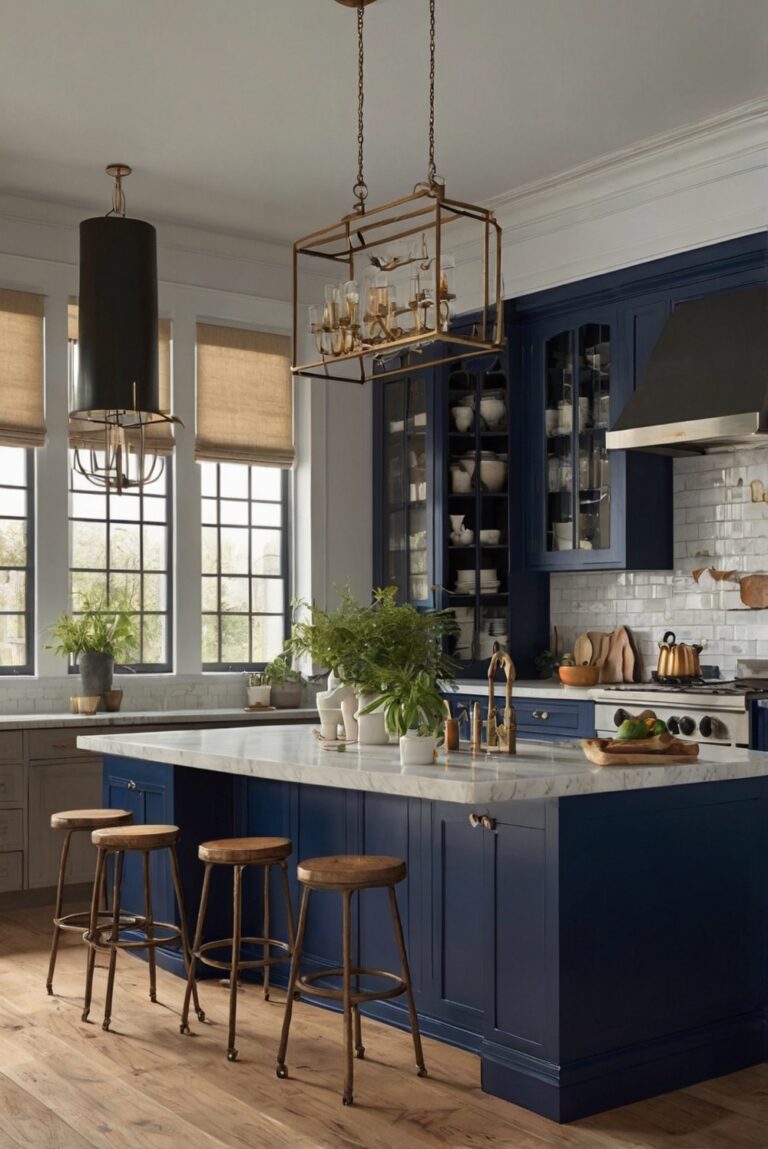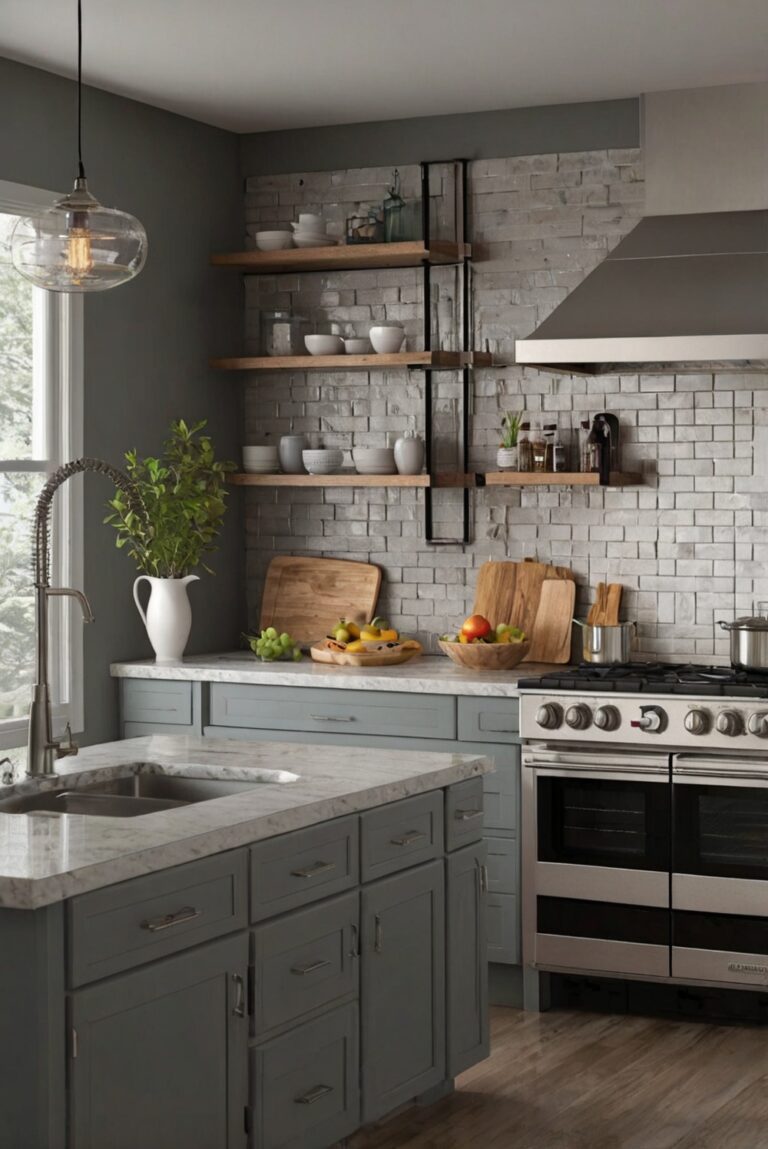Discover the advantages of open shelving and closed cabinets in kitchen design. Get insights from a daily interior designer routine to enhance your home decor!
Benefits of Open Shelving vs. Closed Cabinets in Kitchens:
Open shelving in kitchens provides a modern and airy feel, making the space look larger and more inviting. It allows for easy access to everyday items, making cooking and meal prep more efficient. With open shelving, you can showcase your favorite dishes, cookbooks, and decor, adding a personal touch to your kitchen. On the other hand, closed cabinets offer more storage space and keep items hidden for a cleaner look. To balance the benefits of both, consider incorporating a mix of open shelves and closed cabinets in your kitchen design. This approach combines functionality with style, creating a practical and visually appealing space.
Benefits of Open Shelving vs. Closed Cabinets in Kitchens
Open Shelving:
Easier Access: Open shelving allows for quick and easy access to items without the need to open and close cabinet doors. This can make cooking and meal preparation more efficient.
Enhances Space: Open shelving can create an illusion of more space in the kitchen, making it feel larger and more open. It also provides an opportunity to showcase decorative items or dishes.
Aesthetic Appeal: Open shelving can add a modern and airy look to the kitchen, creating a visually appealing display of items that can enhance the overall design.
Closed Cabinets:
Hidden Storage: Closed cabinets offer concealed storage, keeping items out of sight and maintaining a clutter-free appearance in the kitchen.
Protection: Closed cabinets provide protection for items from dust, grease, and other kitchen elements that may affect the cleanliness and condition of the items.
Conclusion:
In conclusion, the choice between open shelving and closed cabinets in kitchens ultimately depends on personal preference, kitchen design, and functionality needs. Both options offer unique benefits and drawbacks, so it’s important to consider factors such as accessibility, space enhancement, aesthetic appeal, hidden storage, and protection when making a decision. By weighing these factors and assessing how they align with your kitchen goals, you can determine whether open shelving or closed cabinets are the right choice for your kitchen.
1. What are the benefits of open shelving in kitchens?
Open shelving in kitchens offers a more spacious and open feel, making the room appear larger and airier. It allows for easy access to frequently used items, promoting organization and efficiency in the kitchen. Open shelves also provide an opportunity to display decorative items, adding a personalized touch to the space. In terms of cost, open shelving is often more budget-friendly than closed cabinets, making it a practical choice for those on a tight budget. Additionally, open shelves can encourage homeowners to keep their kitchen items organized and decluttered.
2. What are the benefits of closed cabinets in kitchens?
Closed cabinets in kitchens offer a sleek and streamlined look, concealing clutter and creating a more polished appearance. They provide ample storage space for less frequently used items, keeping the kitchen looking tidy and organized. Closed cabinets can also help protect dishes and glassware from dust and grease, maintaining their cleanliness. Additionally, closed cabinets offer a more traditional and timeless aesthetic, which may appeal to homeowners looking for a classic kitchen design.
3. How do open shelving and closed cabinets impact kitchen organization?
Open shelving encourages homeowners to keep their kitchen items organized and neatly displayed, as items are visible and easily accessible. This can help promote a more organized and efficient cooking experience. On the other hand, closed cabinets offer a hidden storage solution for items that are not used as frequently, keeping the kitchen looking tidy and clutter-free. By combining open shelving for frequently used items and closed cabinets for less commonly used items, homeowners can achieve a balance of practicality and aesthetics in their kitchen organization.
4. Are there any design considerations to keep in mind when choosing between open shelving and closed cabinets?
When deciding between open shelving and closed cabinets, homeowners should consider the overall design aesthetic they want to achieve in their kitchen. Open shelving works well in modern and minimalist kitchens, adding a touch of openness and lightness to the space. Closed cabinets, on the other hand, are ideal for creating a more traditional or formal look in the kitchen. Additionally, the size of the kitchen and the amount of storage needed should be taken into account when choosing between open shelving and closed cabinets.
5. What are some tips for incorporating both open shelving and closed cabinets in a kitchen?
To create a balanced and functional kitchen design, homeowners can consider incorporating a combination of open shelving and closed cabinets. One approach is to use open shelving for frequently used items such as dishes, glasses, and cookware, while utilizing closed cabinets for storing bulky appliances or less commonly used items. Another tip is to mix materials and finishes to add visual interest and depth to the kitchen design. By strategically placing open shelves and closed cabinets, homeowners can achieve a harmonious blend of practicality and style in their kitchen.


